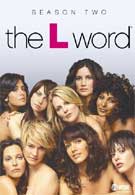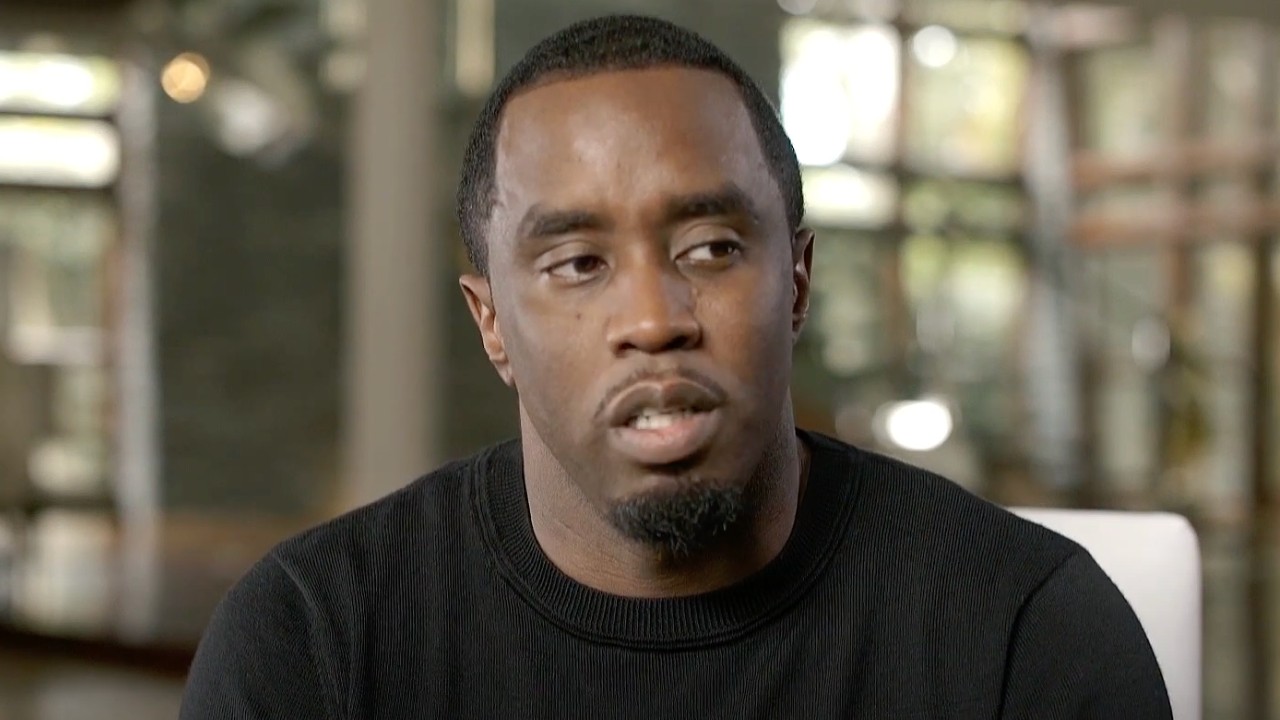With "The L Word," Showtime endeavors to portray girls who like girls in a slightly more realistic light than the two-dimensional lesbians of convenience the networks trot out every time sweeps rolls around. While the authenticity of the resulting show would have to be examined by someone a bit more Sapphic than I, there's no doubt that it makes for compelling drama. Even if a lot of you are only tuning in for the naughty bits. Hot, uncensored girl-on-girl action!
Now that I have your attention…
I kid, of course, but the above line fairly accurately describes the plight of the lesbian when it comes to TV storytelling. If gay males were long the brunt of easy stereotypes and easier jokes (Look, everybody, he lisps!), strides have gradually been made to present more honest portrayals of the homosexual lifestyle, "Will & Grace" notwithstanding. Lesbians, on the other hand, seem to have suffered a different, but equally exploitative, plight on the boob tube: they're the go-to solution anytime a show wants to "spice things up." We'll call it "The O.C. Effect", so the kids out there have a pop-culture anchor they can cling to, though the phenomenon stretches all the way back to Michelle Green and Amanda Donahoe's lesbian liplock on a 1991 episode of "L.A. Law". Sure, there have been plenty of punchlines about mullets, flannel, and women's golf, but by and large the TV lesbian tends toward the lipstick variety, and their job description is no more innovative nor insightful than Paris Hilton's moronic catchphrase: "That's hot."
Not that there's anything wrong with that.
The show gives us a large and talented cast, but manages nevertheless manages to be accessible enough that even those of us who missed the first season can catch on quickly. The on-again, off-again couple of Tina and Bette struggle with the aftermath of a failed pregnancy and a subsequent infidelity. Alice and Dana try and keep their own affair a secret from their friends, including Alice's fiancé. Shane spars with a power-mad Hollywood producer and does her best to duck, dodge, and weave around any potential long-term relationships. Writer Jenny attempts to come to terms with her sexuality, as well as her dark past. And Kit, played by blaxploitation legend Pam Grier, finds questions of sexuality overshadowed by a covert extraterrestrial invasion she must thwart via guts, cunning, and an array of high-caliber weaponry.
I may have made up that last part.
Despite being fairly clearly marketed as a drama about the relationships between a group of friends who happen to be lesbians, I'm sure there has been no shortage of red-blooded American males who have Tivoed the show just so they can fast-forward to the "good parts." I'm equally sure that they'd be better served familiarizing themselves with a little thing called the internet. But once they've run through their stock of tissues, they might want to give this show a chance from a storytelling perspective, as opposed to just a glorified aid to onanism. As is expounded upon in one of the commentaries, the show is at its heart about friendship, about family as a function of choice, as opposed to simply biology, and how that family can fracture and heal and evolve. At times heart-breaking, often hysterical, constantly engaging, "The L Word" manages to tell stories about a segment of the population perpetually debated, misunderstood, dismissed, and judged by those who don't fit within it, and it does so without ever stooping to easy answers or mounting a soap box. While the show does portray characters who don't approve of the principals' lifestyle (including, in one case, a parent), it does so in an honest manner that doesn't set up any straw-man arguments and doesn't patronize us by providing resolution where there so often is none. Even those aforementioned "good parts" are rooted in character, not just excuses to parade the ridiculously attractive cast around with their kit off.
In fact, the show even addresses the perpetual specter of the quote-unquote "male lesbian fantasy" in the person of Jenny and Shane's straight male roommate, Mark. A self-styled "documentary filmmaker," he reluctantly admits during his application interview with the girls that his films tend more toward Girls Gone Wild than Girl on a Bridge. But no! he protests. He's a struggling artist forced to pander to the lowest common denominator until he can marshal the funds to shoot the Great American Documentary. He's certainly not the type to string up hidden cameras in hopes of compiling the next installment of Naughty Lesbo Nymphos. Wait, actually he is. And if you have tuned in just to catch a glimpse of some Sapphic lovin', then his callous exploitation of the show's protagonists should make you feel ashamed of yourself, just like the filthy pervert you are. Nonetheless, the storyline, this season's strongest, forces both audience and Mark to confront hard questions of where the line is between creative license and crass manipulation, between art and pornography, and what the responsibilities are of an artist toward his subjects.
Also, there are boobs.
If the show has a primary failing, it's a tendency to be more than a little soap-y at times. But given that this is the only show of its kind on American airwaves right now, we'll forgive them the odd dollop of suds. The highlight of the set's special features is the three hours of deleted sex scenes, particularly the 45-minute orgy sequence from episode five.
I'm kidding. But you were excited there for a second, weren't you? Pervert.
There is a moderate array of special features, many of which unfortunately are little more than standard press-kit filler. "L Word Girls On the Record" is a series of five short segments, obviously originally designed to be aired as promotional teasers on Showtime, featuring the various stars discussing issues such as pregnant nookie, pulling a "Felicity" on Mia Kirshner's hair, and working with guest star Camryn Manheim (sans steamroller, sadly). "L Word Balderdash", for those not familiar with the theoretically popular party game, tosses out various naughty-sounding l-words such as "labiodental" and asks the ladies to riff amusing false definitions for them. "Playing with the Girls: L Word Shorts" is another bit of promotional fluff, with the actresses answering questions about their first kiss, the worst pick-up line they've experienced, and what they would be if they were a fancy drink (sadly, none of them would be a Screaming Orgasm).
Stretching the definition of "special feature" is a menu option that offers the viewer information on how to download free "L Word" music, how to save money on one's Showtime subscription, and several contests, including one boasting a prize of a walk-on role on the show. And no, I'm fairly certain they don't let you pick which scene you walk onto.
For those of you interested in the musical talents of Pam Grier, the set offers a music video of "Some Kind of Wonderful," as performed by Ms. Grier and a band known as Betty.
Addressing the show's impact on viewers, the set includes an assortment of viewer mail from fans of the show who credit the show with directly affecting their lives, as gathered through the show's fan site. The letters are heartfelt, but the feature suffers from being one of those text-based set-ups where you have to click the "next" button on your remote 4,700 times before you're through. The show also offers cast bios and a short featurette on guest star and prominent feminist Gloria Steinem, as well as her Ms. Foundation for Women.
Finally, the most interesting of the features are the two audio commentaries. The first, on the episode "Land Ahoy", is more entertaining, but doesn't offer much of substance. It is, rather, more or less an excuse for actresses Erin Daniels, Leisha Hailey, and Katherine Moennig to shoot the shit, mock each other's hair, and generally "Mystery Science Theater 3000" their day jobs for a good hour. The second, and weightier, of the two is on the season finale, "Lacuna." On it, Executive Producer Ilene Chaiken and series musician Elizabeth Ziff discuss the themes, characterization, and structure of the series, as well as its importance from a social standpoint and how its storylines have intersected with Chaiken's own life experiences. Ziff enlightens us as to how integral music has been to the series, and specifically how she chose to use it in the second season's emotional finale.
While the commentaries are worth two hours of your time, especially the one featuring Chaiken and Ziff, it's disappointing that so many of these so-called special features are just recycled promo material from the network, and therefore not particularly special at all. I mean, how hard would it have been to throw together a featurette on the detrimental social effects of "the male gaze"? (I knew that college course would come in handy some day…)
NBC's One Chicago Is Running Out Of Episodes This Spring, But Med Already May Be Setting Up Hannah's Big Season 11 Story
Over The Top And Ridiculous Endings To Great Comedies From The 1980s
Samuel L. Jackson And Hayden Christensen Surprised Star Wars Fans At Revenge Of The Sith Screening, And As A Fan, I Can’t Help But Smile











